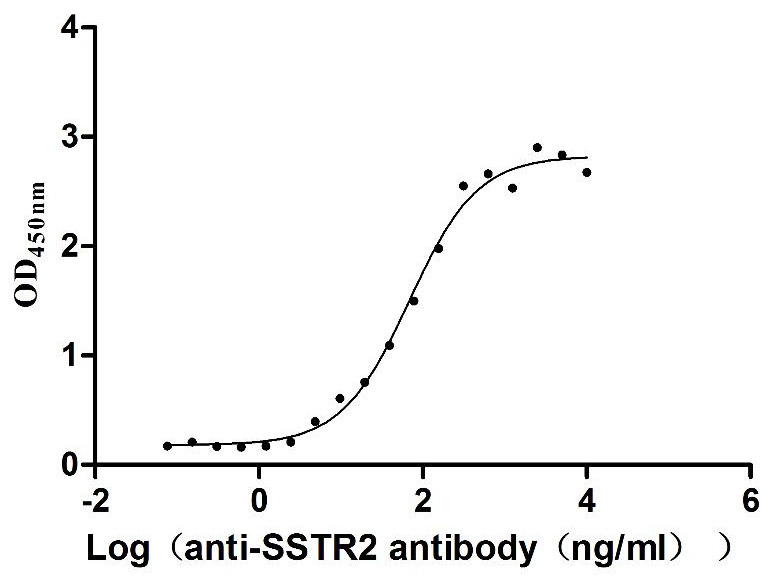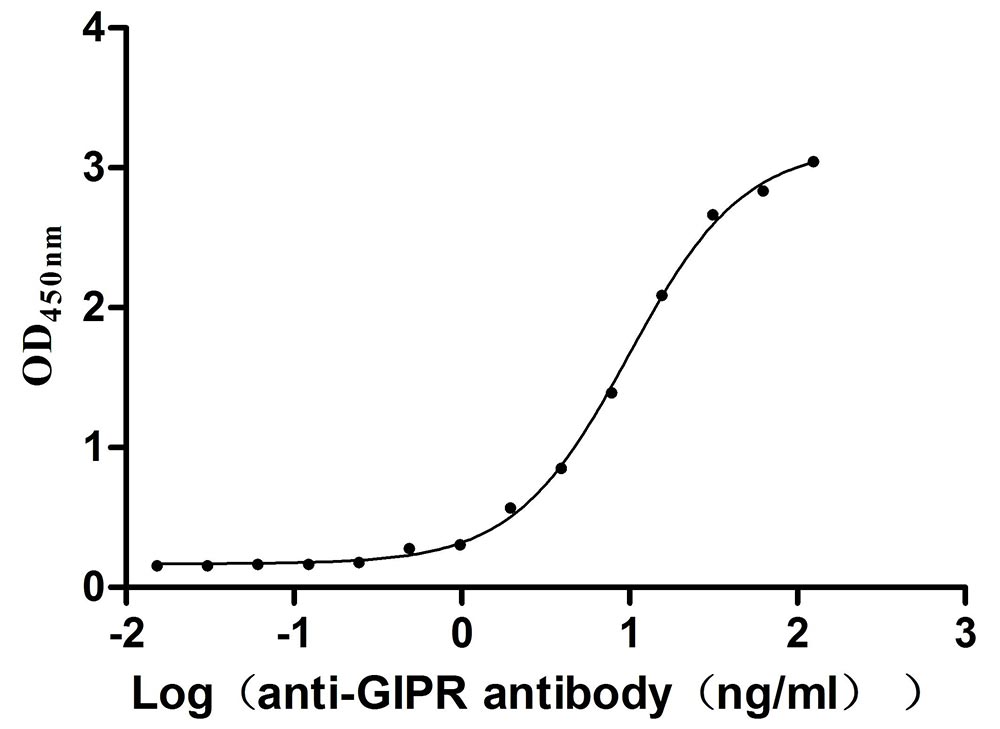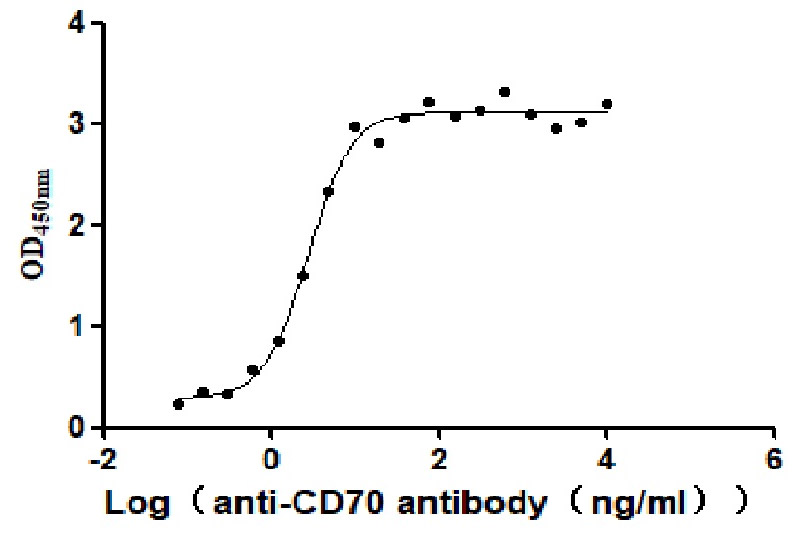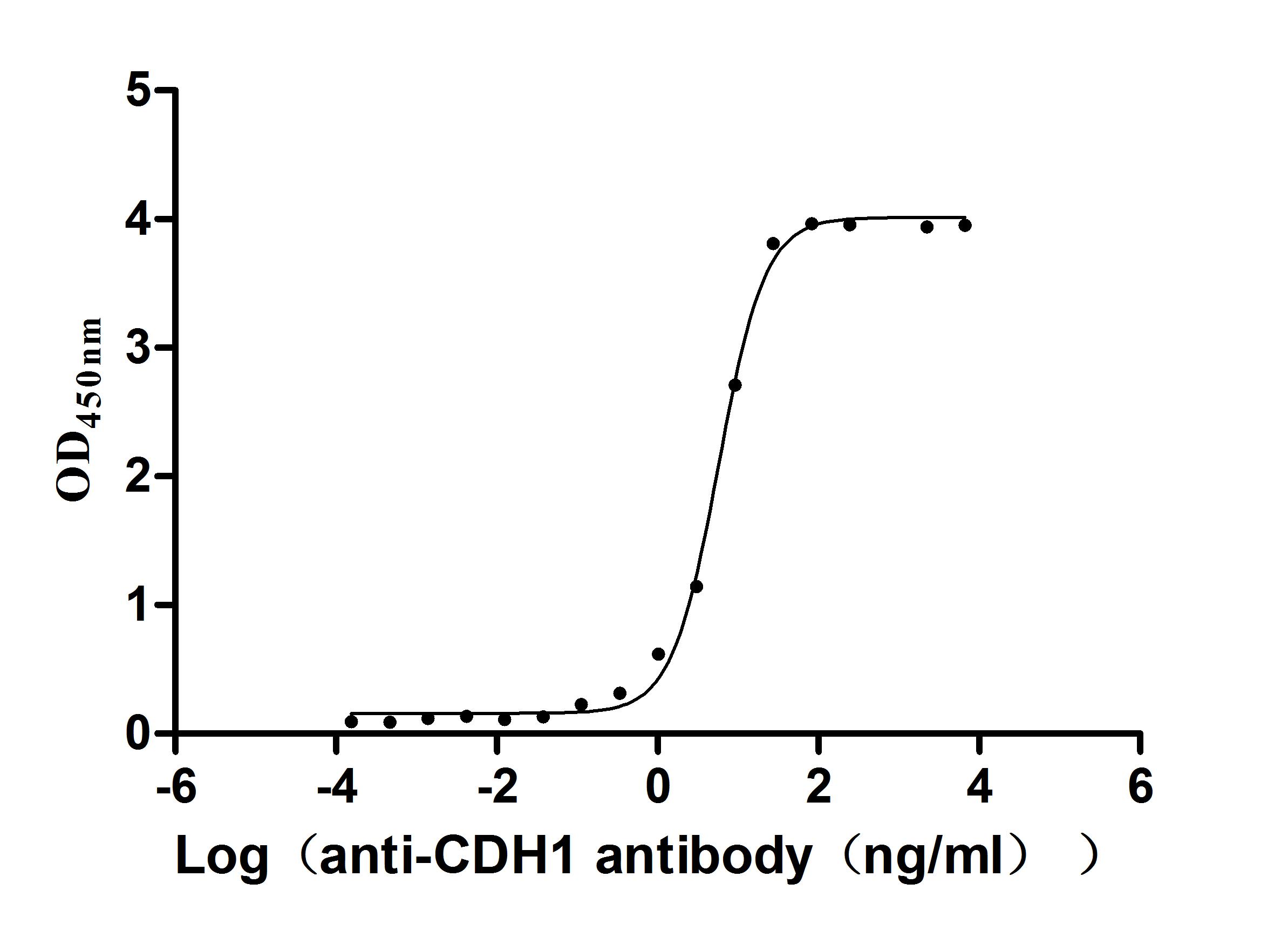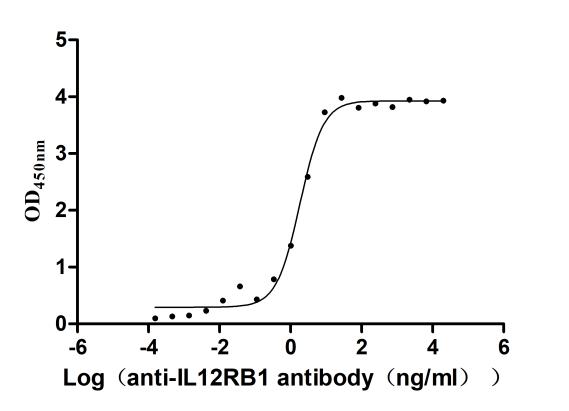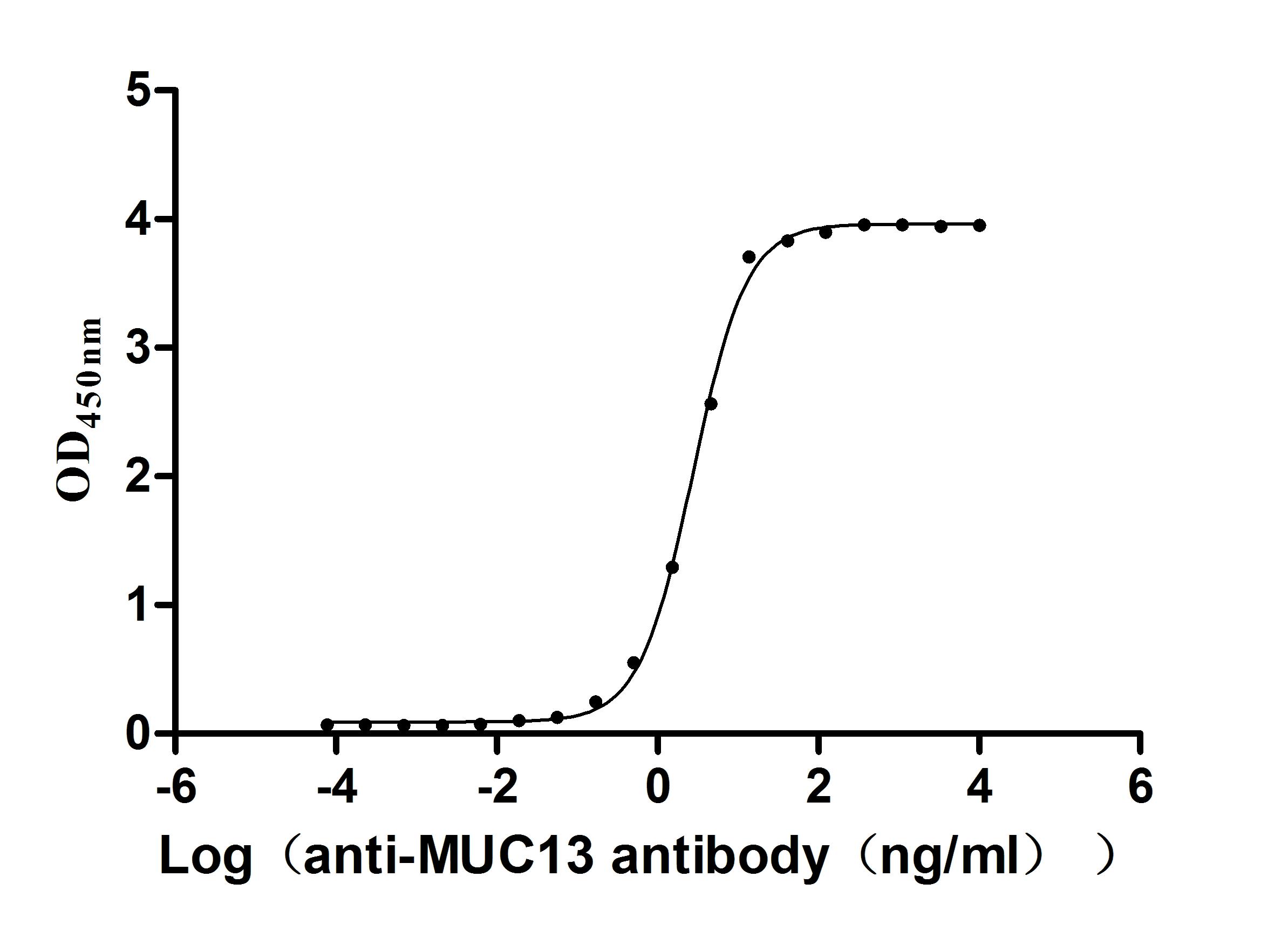Recombinant Mouse Ribosomal protein S6 kinase beta-1 (Rps6kb1)
-
货号:CSB-YP804395MO
-
规格:
-
来源:Yeast
-
其他:
-
货号:CSB-EP804395MO
-
规格:
-
来源:E.coli
-
其他:
-
货号:CSB-EP804395MO-B
-
规格:
-
来源:E.coli
-
共轭:Avi-tag Biotinylated
E. coli biotin ligase (BirA) is highly specific in covalently attaching biotin to the 15 amino acid AviTag peptide. This recombinant protein was biotinylated in vivo by AviTag-BirA technology, which method is BriA catalyzes amide linkage between the biotin and the specific lysine of the AviTag.
-
其他:
-
货号:CSB-BP804395MO
-
规格:
-
来源:Baculovirus
-
其他:
-
货号:CSB-MP804395MO
-
规格:
-
来源:Mammalian cell
-
其他:
产品详情
-
纯度:>85% (SDS-PAGE)
-
基因名:
-
Uniprot No.:
-
别名:Rps6kb1Ribosomal protein S6 kinase beta-1; S6K-beta-1; S6K1; EC 2.7.11.1; 70 kDa ribosomal protein S6 kinase 1; P70S6K1; p70-S6K 1; Ribosomal protein S6 kinase I; S6K; p70 ribosomal S6 kinase alpha; p70 S6 kinase alpha; p70 S6K-alpha; p70 S6KA
-
种属:Mus musculus (Mouse)
-
蛋白长度:full length protein
-
表达区域:1-525
-
氨基酸序列MRRRRRRDGF YLAPDFRHRE AEDMAGVFDI DLDQPEDAGS EDELEEGGQL NESMDHGGVG PYELGMEHCE KFEISETSVN RGPEKIRPEC FELLRVLGKG GYGKVFQVRK VTGANTGKIF AMKVLKKAMI VRNAKDTAHT KAERNILEEV KHPFIVDLIY AFQTGGKLYL ILEYLSGGEL FMQLEREGIF MEDTACFYLA EISMALGHLH QKGIIYRDLK PENIMLNHQG HVKLTDFGLC KESIHDGTVT HTFCGTIEYM APEILMRSGH NRAVDWWSLG ALMYDMLTGA PPFTGENRKK TIDKILKCKL NLPPYLTQEA RDLLKKLLKR NAASRLGAGP GDAGEVQAHP FFRHINWEEL LARKVEPPFK PLLQSEEDVS QFDSKFTRQT PVDSPDDSTL SESANQVFLG FTYVAPSVLE SVKEKFSFEP KIRSPRRFIG SPRTPVSPVK FSPGDFWGRG ASASTANPQT PVEYPMETSG IEQMDVTVSG EASAPLPIRQ PNSGPYKKQA FPMISKRPEH LRMNL
-
蛋白标签:Tag type will be determined during the manufacturing process.
The tag type will be determined during production process. If you have specified tag type, please tell us and we will develop the specified tag preferentially. -
产品提供形式:Lyophilized powder
Note: We will preferentially ship the format that we have in stock, however, if you have any special requirement for the format, please remark your requirement when placing the order, we will prepare according to your demand. -
复溶:We recommend that this vial be briefly centrifuged prior to opening to bring the contents to the bottom. Please reconstitute protein in deionized sterile water to a concentration of 0.1-1.0 mg/mL.We recommend to add 5-50% of glycerol (final concentration) and aliquot for long-term storage at -20℃/-80℃. Our default final concentration of glycerol is 50%. Customers could use it as reference.
-
储存条件:Store at -20°C/-80°C upon receipt, aliquoting is necessary for mutiple use. Avoid repeated freeze-thaw cycles.
-
保质期:The shelf life is related to many factors, storage state, buffer ingredients, storage temperature and the stability of the protein itself.
Generally, the shelf life of liquid form is 6 months at -20°C/-80°C. The shelf life of lyophilized form is 12 months at -20°C/-80°C. -
货期:Delivery time may differ from different purchasing way or location, please kindly consult your local distributors for specific delivery time.Note: All of our proteins are default shipped with normal blue ice packs, if you request to ship with dry ice, please communicate with us in advance and extra fees will be charged.
-
注意事项:Repeated freezing and thawing is not recommended. Store working aliquots at 4°C for up to one week.
-
Datasheet :Please contact us to get it.
靶点详情
-
功能:Serine/threonine-protein kinase that acts downstream of mTOR signaling in response to growth factors and nutrients to promote cell proliferation, cell growth and cell cycle progression. Regulates protein synthesis through phosphorylation of EIF4B, RPS6 and EEF2K, and contributes to cell survival by repressing the pro-apoptotic function of BAD. Under conditions of nutrient depletion, the inactive form associates with the EIF3 translation initiation complex. Upon mitogenic stimulation, phosphorylation by the mammalian target of rapamycin complex 1 (mTORC1) leads to dissociation from the EIF3 complex and activation. The active form then phosphorylates and activates several substrates in the pre-initiation complex, including the EIF2B complex and the cap-binding complex component EIF4B. Also controls translation initiation by phosphorylating a negative regulator of EIF4A, PDCD4, targeting it for ubiquitination and subsequent proteolysis. Promotes initiation of the pioneer round of protein synthesis by phosphorylating POLDIP3/SKAR. In response to IGF1, activates translation elongation by phosphorylating EEF2 kinase (EEF2K), which leads to its inhibition and thus activation of EEF2. Also plays a role in feedback regulation of mTORC2 by mTORC1 by phosphorylating RICTOR, resulting in the inhibition of mTORC2 and AKT1 signaling. Mediates cell survival by phosphorylating the pro-apoptotic protein BAD and suppressing its pro-apoptotic function. Phosphorylates mitochondrial RMP leading to dissociation of a RMP:PPP1CC complex. The free mitochondrial PPP1CC can then dephosphorylate RPS6KB1 at Thr-412, which is proposed to be a negative feedback mechanism for the RPS6KB1 anti-apoptotic function. Mediates TNF-alpha-induced insulin resistance by phosphorylating IRS1 at multiple serine residues, resulting in accelerated degradation of IRS1. In cells lacking functional TSC1-2 complex, constitutively phosphorylates and inhibits GSK3B. May be involved in cytoskeletal rearrangement through binding to neurabin. Phosphorylates and activates the pyrimidine biosynthesis enzyme CAD, downstream of MTOR. Following activation by mTORC1, phosphorylates EPRS and thereby plays a key role in fatty acid uptake by adipocytes and also most probably in interferon-gamma-induced translation inhibition.
-
基因功能参考文献:
- DPP-4 inhibitor sitagliptin has effects on cardiac function, glycemia, and beta-cell function together with reducing S6K1 activation and IRS-1 and IRS-2 degradation in the obesity female mouse model PMID: 30116740
- S6K1-dependent IRS-1pSer suppresses insulin signaling leading to insulin resistance, which is frequently observed in AD brains. Notably, miR-200b/c transfection of SH-SY5Y cells reduced the levels of IRS-1pSer. This finding indicates that miR-200b/c has the potential to alleviate insulin resistance via modulation of S6K1 PMID: 29738527
- Activation of S6K1-mediated protein synthesis and increased autophagy in white adipose tissue was detected in chronic alcohol fed animals. PMID: 27464336
- we show that simultaneous inhibition of mTOR signaling to both S6K1 and 4E-BP1 is sufficient to reduce AKT-induced muscle growth and render it insensitive to the mTORC1-inhibitor rapamycin PMID: 27705797
- S6K1 acts through multiple targets of the mTOR pathway to promote self-renewal and leukemia progression PMID: 27294524
- transfection of cells with a constitutively active rapamycin-resistant p70S6K mutant could restore the mineralizing capacity of HtrA1-deficient mouse adipose-derived stromal cells. PMID: 26950191
- We provide mechanistic evidence that S6K1's negative feedback to PI3K signaling is involved in axon growth inhibition, and show that phosphorylation of S6K1 is a more appropriate regeneration indicator than is S6 phosphorylation. PMID: 28626016
- S6K1 phosphorylation of H2B mediates EZH2 trimethylation of H3 early in adipogenesis, contributing to the promotion of obesity. PMID: 27151441
- the p70S6K isoforms have unique and redundant functions in mediating fibrogenic processes, including proliferation, migration. PMID: 27438654
- Rcan2 and Rps6kb1 mutations both affect growth and body weight of mice, though likely through different mechanisms PMID: 27604858
- Findings indicate that similar to overall cell size growth, Golgi growth is modulated by the "cell growth checkpoint" at late G1 phase through the activities of S6 kinase 1 (S6K1). PMID: 27325676
- the results identify the JNK/S6K1 axis as a key molecular mechanism whereby a high fat/sucrose diet impairs insulin action in retina. PMID: 27965359
- Data show that the formation of a tripartite ribosomal protein S6 kinase 1 (S6K1)-STING membrane protein-TANK-binding kinase 1 (TBK1) complex was necessary for the activation of interferon regulatory factor-3 (IRF3). PMID: 27043414
- Our study suggests that Ab25-35 induces autophagy and the PI3K/AKT/mTOR/p70S6K pathway is involved in the process, which improves our understanding of the pathogenesis of Alzheimer's disease and provides an additional model for AD research PMID: 26583091
- Reducing S6K activity prevents accelerated axon growth induced by hyperactive mTOR in vivo. PMID: 26220974
- targeting the S6K pathway selectively modifies the progression of pulmonary fibrosis in the subpleural compartment of the lung PMID: 26566903
- The neuronal mechanism uncovered here serves to coordinate amino acid and lipid levels and contributes to the development of obesity-related hypertriglyceridemia. PMID: 26268630
- the Akt/mTOR/p70S6K pathway was activated in IgA nephropathy, and our findings suggested that rapamycin may represent a viable option for the treatment of IgA nephropathy PMID: 26297427
- The mTORC1 effectors S6K1 and 4E-BP play different roles in CNS axon regeneration. PMID: 25382660
- in adult cardiac myocytes 4-hydroxy-trans-2-nonenal stimulates protein synthesis by activation of mTORC1-p70S6K-RPS6 signaling PMID: 25617592
- This is the first study highlighting the activation of S6K1 by palmitic acid as a common and novel mechanism by which its inhibition by oleic acid prevents endoplasmic reticulum stress, lipoapoptosis and insulin resistance in hepatocytes. PMID: 25846498
- Our findings suggest that S6K1 signaling is not a general integrator of energy homeostasis in the mediobasal hypothalamus but has distinct roles in the regulation of glucose homeostasis PMID: 25865886
- Rotenone induction of hydrogen peroxide inhibits mTOR-mediated S6K1 and 4E-BP1/eIF4E pathways, resulting in caspase-dependent and -independent apoptosis in neuronal cells. PMID: 25304210
- p19(Arf), an inhibitor of cell cycle progression, is a novel substrate of S6K1 that is targeted to promote cell proliferation. PMID: 26240281
- reexpression of S6K1 in beta cells of S6K1-/- mice restored embryonic beta cell size, insulin levels, glucose tolerance, and RPS6 phosphorylation, without rescuing IUGR PMID: 26075820
- the PAS kinase function could be critical for preserving the nutrient effect on AMP-activated protein kinase and mammalian target of rapamycin/S6K1 pathways and maintain the regulatory role of exendin-4 in food intake PMID: 24445950
- The effect of Akt1 and Mek1 on extracellular matrix synthesis was reconciled through the activation of p70 S6-kinase. PMID: 25843685
- the downregulation of MMP-9 by apigenin was mediated by the AKT/p70S6K1 pathway. PMID: 22837693
- p70S6K the seeding and successful colonization of ovarian cancer spheroids on the peritoneum and increases peritoneal adhesion and dissemination of ovarian cancer. PMID: 25193855
- Study shows that BMAL1 is a translation factor, which in response to phosphorylation by S6K1, regulates rhythms of protein synthesis; protein synthesis rates demonstrate circadian oscillations dependent on BMAL1. PMID: 25981667
- P31S6K1 is an inhibitor of adipogenesis. PMID: 25776557
- Arg-II, p38, and S6K1 form a positive circuit which regulates endothelial senescence and cardiovascular aging. PMID: 25635535
- By targeting Ras/ERK pathway, p27 provided a negative control over HIF-1alpha protein synthesis in an S6-dependent manner, and abrogated arsenite-induced cell transformation via downregulation of HIF-1alpha translation. PMID: 25412313
- mTORC1 also regulates HIF-1alpha synthesis on a translational level via co-operative regulation of both initiation factor 4E-binding protein 1 (4E-BP1) and ribosomal protein S6 kinase-1 (S6K1) PMID: 24931163
- S6K1, considered to be involved in protein translation, is a morphogenic protein. Its presence alters the overall organization of the cell surface and cell circularity in S6K-overexpressing macrophages causing stellation and arborization of cell shape. PMID: 25512366
- ULK1 knockdown increased neuronal cell viability, and enhanced S6k1 phosphorylation in a dopaminergic neuron model of Parkinson's disease PMID: 25680463
- Collectively, these data strongly suggest that FMRP S499 phosphorylation is independent of mTORC1-S6K1 activity and is not altered in TSC. PMID: 24806451
- IL-6 induces the activation of the Stat3 signaling and promotes the downmodulation of the p90RSK/eEF2 and mTOR/p70S6K axes, while it does not affect the activation of AKT. PMID: 24967341
- The paper proposed a novel pathway/mechanism involving Rheb/mTORC1/S6K signaling to explain how C2-ceramide impairs insulin signaling via Akt phosphorylation. PMID: 24650522
- Impairment of p70S6K activity in breast cancer cells strongly decreased their tumor take rate in nude mice. PMID: 24661902
- PLD1 is activated by LPS/TLR4/Myd88 pathway and regulates TNF-alpha expression and production through S6K1/JNK/c-Jun in Raw 264.7 cells. PMID: 24548427
- H2O2 stimulated phosphorylation of RSK and MSK kinases at residues that are homologous to Thr389 in S6K1. This phosphorylation required the activity of either p38 or ERK MAP kinases. PMID: 24058693
- The reconsolidation of fear memory requires concomitant association of eIF4E to eIF4G as well as S6K1 activity. The persistence of memory at longer intervals after memory reactivation also requires mTORC1-dependent processes that involve S6K1. PMID: 24990923
- Liver and muscle tissue from S6K1 knockout mice retain normal ribosomal activity. PMID: 23839034
- Data indicate that ribosomal S6 kinase 1 (S6K1) is negatively involved in the toll-like receptorS TLR2 and TLR4 signaling pathway by the inhibition of TAK1 (MAP3K7) activity. PMID: 24277938
- These results suggest that the reduction in food intake induced by the central administration of metformin in the mice may be mediated by activation of S6K pathway. PMID: 23824960
- Focal adhesion kinase is required for IGF-I-induced muscle hypertrophy, signaling through a TSC2/mTOR/S6K1-dependent pathway PMID: 23695213
- our study describes a novel pathway regulating hepatic insulin sensitivity that is mediated by hypothalamic ATF4/mTOR/S6K1 signaling and the vagus nerve and demonstrates a role for hypothalamic ATF4 in brain ER stress-induced hepatic insulin resistance. PMID: 23454693
- alternative splicing of S6K1 acts as a molecular switch in breast cancer cells, elevating oncogenic isoforms that activate mTORC1. PMID: 23273915
- We found that Akt/Rheb/mTORC1 responds to ER activation in neurons and that some elements of this pathway are able to restore a normal neuronal morphology even in the presence of oestrogen receptor antagonist PMID: 23295457
显示更多
收起更多
-
亚细胞定位:Cytoplasm. Cell junction, synapse, synaptosome. Mitochondrion outer membrane. Mitochondrion.
-
蛋白家族:Protein kinase superfamily, AGC Ser/Thr protein kinase family, S6 kinase subfamily
-
数据库链接:
KEGG: mmu:72508
STRING: 10090.ENSMUSP00000119715
UniGene: Mm.394280
Most popular with customers
-
Recombinant Human Somatostatin receptor type 2 (SSTR2)-VLPs (Active)
Express system: Mammalian cell
Species: Homo sapiens (Human)
-
Recombinant Mouse Gastric inhibitory polypeptide receptor (Gipr), partial (Active)
Express system: Mammalian cell
Species: Mus musculus (Mouse)
-
Recombinant Human CD70 antigen (CD70), partial (Active)
Express system: Mammalian cell
Species: Homo sapiens (Human)
-
Recombinant Human Cadherin-1(CDH1),partial (Active)
Express system: Mammalian cell
Species: Homo sapiens (Human)
-
Recombinant Human Interleukin-12 receptor subunit beta-1(IL12RB1),partial (Active)
Express system: Mammalian cell
Species: Homo sapiens (Human)
-
Recombinant Human Mucin-13(MUC13),partial (Active)
Express system: yeast
Species: Homo sapiens (Human)


